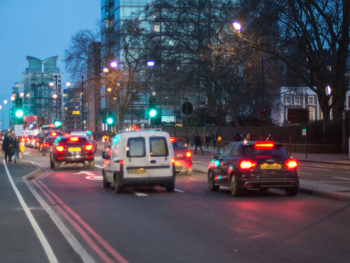The number of vehicles registered for use on British roads has surpassed 40 million for the first time, helped by a large rise in van ownership.

The figures from the Society of Motor Manufacturers and Traders (SMMT) reveal more than 35 million cars and five million commercial vehicles were in use in the UK in 2019, representing a 1.0% increase on the previous year.
Passenger cars increased 0.8% to 35,168,259 over the same period. The highest growth however was seen purely in the light commercial vehicles sector, which was up 2.7% on 2018 to 4,527,724 units and has risen 28% in the last decade. The number of HGVs grew by 0.4% to 607,998 – the largest number delivering for Britain since 1990.
The 40 million-strong fleet also now includes more than three quarters of a million low, ultra-low and zero-emission cars, helped by a 26% rise in registrations last year. There are now 532,603 hybrids, 144,335 plug-in hybrids and 92,913 battery electric vehicles in use, although this segment still makes up just 2.2% of the overall car parc. Meanwhile the number of diesel cars in use fell marginally by 0.9% to 13,723,299, accounting for 39% of the parc, while petrol cars grew by 1.2% to 20,657,838.
Supported by this take-up, average CO2 emissions continue to fall across the car parc, reaching 175.1g/km – the lowest level on record and down 9.2% since 2008.
The data also reveals that Birmingham has the second highest number of battery electric and plug-in hybrid vehicles after Greater London, with some 24,000 zero and ultra-low emission cars on the city’s roads
Mike Hawes, SMMT chief executive, said: “These figures show the essential role Britain’s vehicle fleet plays for society. They also provide evidence that industry’s ongoing investment into ever cleaner, safer and more reliable vehicle technology is paying off, even as demand for mobility grows. To ensure this trend continues, we must get the right support for businesses and their workers in place now so that when this crisis is over, the sector can help get the whole country and our economy back on the move.”

